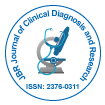Research Article
Assessment of Client Satisfaction on Family Planning Services Utilization in Wonji Hospital, Ethiopia, 2016
Wakjira BA*Selale Campus, Addis Ababa University, Ethiopia
- *Corresponding Author:
- Wakjira BA
Selale Campus, Addis Ababa University, Ethiopia
Tel: +251961417850
E-mail: bizunehayano@gmail.com
Received date: February 05, 2017; Accepted date: February 18, 2017; Published date: February 27, 2017
Citation: Ayano Wakjira B (2017) Assessment of Client Satisfaction on Family Planning Services Utilization in Wonji Hospital, Ethiopia, 2016. J Clin Diagn Res 5:137. doi: 10.4172/2376-0311.1000137
Copyright: © 2017 Wakjira BA. This is an open-access article distributed under the terms of the Creative Commons Attribution License, which permits unrestricted use, distribution, and reproduction in any medium, provided the original author and source are credited.
Abstract
Background: Patients have the right to expect quality of care. Providing quality of care in family planning services is an important task for care providers so as to increase services utilization and coverage. Research of Hospital based patient satisfaction on family planning service utilization is rare in some regions of Ethiopia. Both availability and quality of family planning services are believed to have contributed to increase contraceptive use and declining fertility rates in developing countries.
Objective: The objective of this study is to assess the client satisfaction on family Planning services utilization provided in wonji hospital, Oromia state, Ethiopia, 2016.
Methodology: A cross-sectional study design will be used during the study period from September 1-October 30, 2016. All women of reproductive age group (15-49) who visit wonji hospital family planning unit with all service providers. During the study period were source populations. All family planning users and service providers who were available during the study period were taken as sample. The sampling technique employed is systematic sampling method. Data were collected by face to face interview and observation during the procedure done by using English version semi-structured questionnaire. The of data collection process will be monitored by giving clear instructions to the data collectors. The results of the study are summarized using tables and graphs.
Result: A total of hundred female contraceptive users and five service providers included in this study. Thirty eight percent are illiterate, 83% were married, 49% are 21-30 years old and 66% are residence in town. The dominant numbers of the clients know family planning method. Injection 59 (59%) and oral contraceptive pills 22 (22%) are the most frequently used.
About 45 (45%) of the client was got both information and service together. Among interviewed client 56 (56%) % of the clients have >30 min waiting time to get the service. Most of the client 59 (59%) didn’t get information on long term family planning. Almost 56 (55%) of client were not satisfied for family planning service given. For clients’ satisfaction waiting time, insufficient information with the service and not informing on long term family planning, marital status and education were found important factors.
Conclusion: Client satisfaction on utilization of family planning service is low in Wonji hospital. Clients are informed well on short term contraceptives method than on long term. Method choices are generally limited to hormonal methods, injectable and oral pill being dominant methods. Waiting time, insufficient information with the service and not informing on long term family planning, marital status and education are important factors affecting client satisfaction on family planning utilization. The health professionals have to improve client satisfaction on utilization of family planning services.
